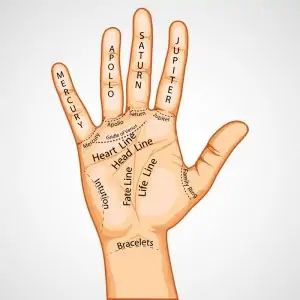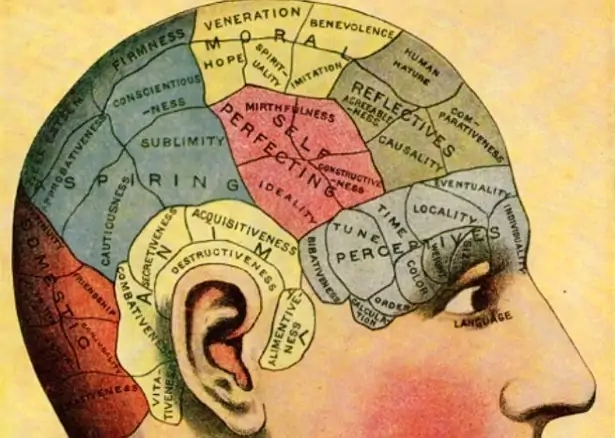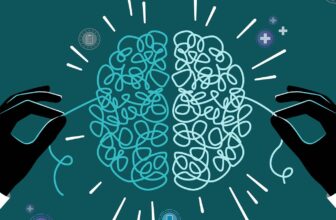What is Psychology and what is not?
What Psychology is, has an interesting view of many people, as exciting as the subject itself. It is said Psychology is at the same time familiar, exotic, surprising, challenging and forever changing. It makes us ponder over our own feelings, actions, thoughts and lives and view them as a third person in an objective manner. This is done by careful thought, observation and inquiry.
Parameswaran’s View:
He says many people consider Psychology as a part of philosophy. People consider it as a magic, considering psychologists as mysterious people. These people are interested in psychology only out of curiosity which stems from ignorance. These people feel psychology is about miracles and mysteries and madness or a means of treating mentally ill people.
Clinical Psychology is definitely an important branch of psychology, but psychology is more vast than just the clinical aspect of it. There are so many problems in our everyday life right from birth to death that psychology can be applied to.
The concepts that are studied in the discipline of psychology are : intelligence, personality, stress, learning, memory, thinking perception, etc.
The topics that are included in psychology are: the nervous system, sensation and perception, learning and memory, intelligence, language and thinking, growth and development, motivation and emotion, personality, stress, psychological disorders, ways of treating these disorders, sexual behavior, and the behavior of people in social settings such as groups and organizations.
It aims to describe, explain, predict and control the phenomena under study, i.e., the mental behavior and processes. It is the aim of the subject to study why and how certain people behave in a certain manner. It attempts to solve problems faced by human beings. The problem arises when people who are not properly trained in this discipline try to act as psychologists and problem-solvers. Such quacks or jhola chaap doctors are found in abundance.We can call them pseudo-psychologists,
Pseudo-Sciences/Pseudo-Psychology
The pseudo-psychologists seem like psychologists, as they all claim to solve our problems and predict our future, e.g., gemologist, graphologist, numerologist, palmist and astrologers.
The word Pseudo means false. Pseudo-psychology, thus, is a system that is similar to psychology but they do not resemble sciences. There are no researches proof to prove their claims, rather the proponents of these systems are wary of anybody who challenges them. On the other hand, scientists are always open to challenges for the purpose of advancing knowledge.
Some pseudo-psychologies:
Palmistry:
This false system claims to predict the future and personality traits by reading the lines of the hands, especially the palms. Also called Chiromancy, derived from the Greek word for hand, its most famous 19th century palmist was Cheiro.

Phrenology:
This system is based on another false belief that the shape of a person’s skull indicates the type of the personality he has. A German anatomy teacher Franz Gall started this system. According to him Personality was revealed by bumps on the skull’. The brain was responsible for the various personality characteristics.
Whichever parts of the brain were used more often became bigger and caused the bumps on the forehead. As the study of the brain, i.e., Neurology developed, it proved all these theories to be wrong, leading to the downfall of phrenology. It is now well known that though the different parts of our brain are responsible for different functions, they are not related to personality traits directly.

Graphology:
Under this system, handwriting is thought to reveal personality traits. In USA, job applicants are assessed by some companies on the basis of their handwriting. Handwriting can definitely help us in detecting forgeries but cannot rate personality as such. In this case studies have shown graphologists score close to zero in doing so.

Numerology:
Under this false system, numbers such as birthday associated with a person are believed to reveal their personality. Even if the numerologist is unable to see you, he can describe you on the basis of these numbers. Numbers can also be assigned to the name of the person.
The numerologist adds these numbers to the numbers in .the birth date, in many combinations, and numbers are assigned to the person. These are interpreted to describe the personality characteristics of a person.

Astrology:
This is another false system in which the belief is that the position of the planets and the stars influence human behavior. The position of the planetary bodies at the time of birth of the person influence a person’s characteristics and behavior. The contemporary astrologists uphold the assertion that the apparent position of the bodies in the solar system at birth is correlated with his personality, activities, preferences and the happenings like marriage, divorce, etc in a person’s life.

There is lack of scientific evidence in Pseudo-psychologies. There are certain basic defects in these systems:
Uncritical Acceptance: Inability of pseudo-psychologists to accept one’s critics and believe only when a person is uncritical or is indulging in flattery for the system. Doubtful people have no place for them.
Fallacy of positive instances: Under these systems only that information or event is remembered which fits the expectations of the system. All that diverges from the beliefs is conveniently forgotten.
Barnum Effect: This is the tendency of the system to regard a personal information as absolutely correct even if the statement is a general one.
Psychology is not like the pseudo-sciences. It is a science based on research and empirical evidence and critical thinking, not on vague common sense.
The principles of critical thinking are follows:
A scientific mind must necessarily have a critical mind. Critical thinking is the ability of a person to inquire about causes and events and develop skepticism about explanations and conclusions. One of the principles of skeptical thinking, is that one must be skeptical and keep an open mind. Nothing must be accepted without evidence.
The assumptions er premises of arguments must be examined. For example, a statement says that we cannot learn about human beings by studying animals. That means we are not animals, but surely we are social animals.
We cannot draw any hasty conclusions from evidence. We have to look at all the possible causes of an event.
Whenever we find some evidence in a research, we have to consider various alternative interpretations than just blindly accepting what has been interpreted by the researcher.
We should not try to oversimplify a complex interaction, and neither over generalize. Sometimes there is more to a problem than a straight-forward ‘yes’ or ‘no’.
Critical thinking must be applied to all areas of life. A skeptical attitude and demand for evidence are useful in all areas of life, whether it is advertisements or politics or any thrilling news item. Search for evidence rather than believe blindly.



